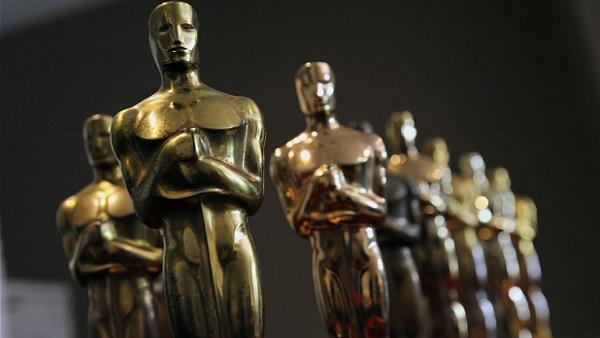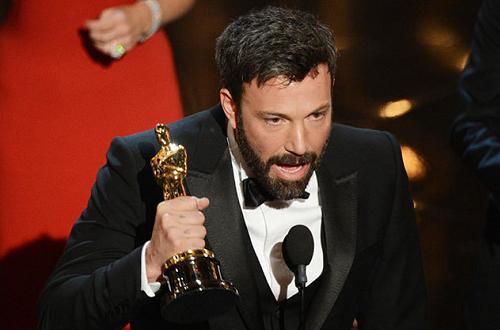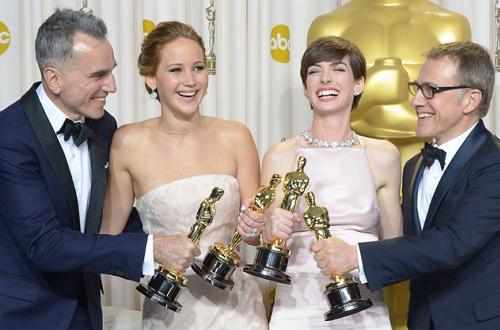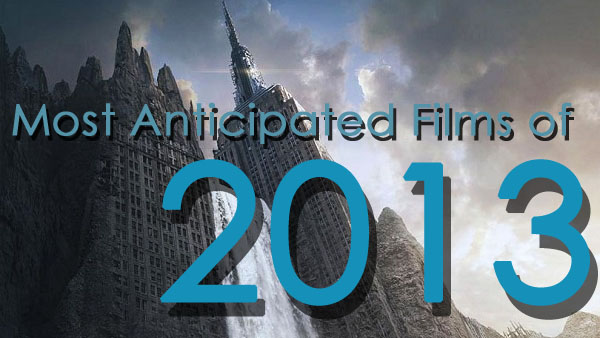
Strange that days after this year’s Academy Awards ceremony, I feel like I have little to say about it. As it happens– as it usually does– there’s plenty to be said about the honors meted out to the slender sample size of 2012’s “best”, but dishing about the process is exhausting and nearly futile in the tidal wave of faux-analysis that invariably follows every Oscar presentation. (And actual, respectable analysis. Not all analyses are made equal.) That’s to say nothing of the baggage that we all bring to the AMPAS’s annual self-congratulatory shindig and the conflicting frustration and indifference many of us feel toward them; put another way, it’s hard to write about something that’s often seen as culturally irrelevant.
And yet here we are. As much as the Oscars are just one big dog and pony show designed to flatter the stars and the studio system they serve with copious amounts of blarney, and as much as golden statues don’t strictly serve as an ironclad measure of quality in filmmaking, we still tune into the hullabaloo because we’re cinephiles. The movies which you want to see nominated may not end up getting acknowledgement, and those that do receive the consideration of a nod might not win, but that’s not going to stop most of us from at least showing cursory interest in the proceedings year after year after year– especially when, as was the case with Sunday’s commemoration, so many of the chosen honorees are actually pretty good. (With exceptions.)
So as much as we might grumble and protest, we’re all drawn into the Oscars eventually, even if we’re just watching the highlights on Youtube the next morning as we eyeball the list of winners on IMDB. I fit snugly into that particular description– a well-timed snowboarding jaunt saved me the punishment of observing the celebration in its entirety. (I started watching it late and was far too tired to keep going after Adele won for “Skyfall”.) The good news is that I don’t need to have seen the whole thing to have an opinion on the winners, and the magic of the Internet has let me catch up on the show’s more “memorable” moments, from Seth MacFarlane’s “hosting” to Jennifer Lawrence tripping up the stairs on her way toward her first victory acceptance speech.
That almost seems like as good a place to start as any, but as great as that Lawrence won for her work in Silver Linings Playbook— which maybe isn’t as accomplished as her work in Winter’s Bone but still ranks among her best performances– the weightiest stories to make their way out of the Dolby Theater involve Ben Affleck and Ang Lee. (And, in the case of the latter, a platoon of angry VFX artists, but we’ll get to that later.) Did anyone think, ten years ago, that the Gigli headlining Affleck would someday be standing tall on the shoulders of the Academy? Can anyone think of a bigger turnaround than that? To go from slumming it in some of the most reviled films of their release years to being the man behind the Best Picture winner in 2013 is kind of massive, even if it took a decade. (Though frankly, I’m surprised the world managed to wash the taste of Affleck’s worst efforts out of their mouths this quickly.)

I’ll admit that I have a clear bias toward Affleck given that he represents my beloved Boston, and I’ll also admit that at the start of awards season I didn’t think his film had the power to beat Lincoln and Zero Dark Thirty. Giving myself some credit, though, Tinseltown hadn’t at that point turned against Bigelow and her discomfiting examination of morality and ethics in the quest for justice against Osama bin Laden; Spielberg hadn’t been taken down several pegs by overzealous press for fudging history in his portrayal of one of the greatest US presidents of all time. Argo, back around November and December, was the underdog, and only recently became the favorite after picking up steam at the Golden Globes and, eventually, scoring BAFTA and DGA victories leading into the 24th.
Does Argo‘s pre-Academy success really mean anything, though? Not necessarily. Neither the BAFTAs nor the Golden Globes are reliable predictors for Academy winners, after all (in the past five or so years, they’ve only mimicked one another two or three times), but Argo‘s real secret weapon is that it’s Hollywood’s favorite kind of movie: the kind that lets Hollywood pat itself on the back. I’m not accusing Affleck of anything here, mind– his film is one giant sly commentary on the fakery, bluster, and ballyhoo of the studio system, a giant reservoir of one-liners and quips about Hollywood’s foolishness and frivolities.
But it’s also a film that plays loose with history, just like Lincoln. With the roles of the Canadian, British, and New Zealand governments downplayed and the involvement of Hollywood and the CIA trumped up, the film becomes a story of Tinseltown coming to the rescue for the US diplomats. That more than anything makes Argo‘s Best Picture win something of a foregone conclusion. Think back to last year, when The Artist— a story of how even, well, the artist suffers nothing but failure when he tries to strike out on his own without studio aid– snagged the top awards of the evening, and Argo‘s victory suddenly feels philosophically consistent.
So Argo‘s win felt like a foregone conclusion. In fact, most of the evening’s wins felt more or less expected; the only real surprises were Christoph Waltz’s and Quentin Tarantino’s respective wins for Django Unchained, and of course Ang Lee’s win for Life of Pi. That’s maybe the second biggest story of the evening, though given that we’ll probably be feeling the aftershocks of his victory in the specific, and Life of Pi‘s success in general, for quite some time it may end up being the biggest. Chalk up Lee’s decision not to thank Rhythm & Hues for basically making his film for him to bad manners, hubris, or the head-spinning euphoria that comes from winning, but there’s really no excuse for how the showrunners treated Bill Westenhofer as he spoke plainly about the troubles facing the VFX industry during his own acceptance speech.

It’s not a secret that VFX artists are fighting an uphill battle for respect and compensation, and have been for a while. In fact, R&H filed for Chapter 11 only weeks before the Oscars (and let’s cross our fingers that their success helps them reverse their fortunes). So seeing Westenhofer ushered off the stage as quickly as he was (while Anne Hathaway took what felt like a half an hour to thank everyone from Tom Hooper to her hubby to the key grip to the guy who brought muffins to the set that one morning) felt like something of an exclamation point on how Hollywood treats its VFX people while also underscoring the inability of VFX houses to stand up for themselves.
This is not, of course, an article about how studios disrespect, underpay, and exploit VFX artists. There are plenty of those to be found elsewhere on the web. (Though I will say that Claudio Miranda’s win is something of a sick joke. I haven’t seen Life of Pi but I know well enough that a huge chunk of the film is CGI, which makes the idea that Miranda actually put in award-winning effort absurd on its face.) But between Westenhofer’s dismissal and the several hundred VFX workers protesting outside the theater, Sunday’s event could very easily be characterized by how it fits into that overarching conflict between the hard-working men and women in the VFX industry and the studio system that treats them like they’re disposable. I don’t know if we watch the Oscars for that sort of dialogue, but it’s hard to ignore it when it crops up, even in the face of the show’s brand of schmaltzy entertainment.
In that arena, Seth MacFarlane proved to be an odd choice for host. Truthfully, his presence did draw in the younger audience the Academy hoped for, but did the American Dad crowd really show up to enjoy a theme of “honoring music in film”? How do you satisfy that demographic, hungry for “edgy” material (though I’d hardly call MacFarlane “edgy”, at least by adult standards), with toothless mainstream musical fare? The Academy had a great idea in tapping the Family Guy himself for the role, but despite his considerable gifts with song-and-dance numbers, the experiment proved unsuccessful courtesy of the weird tension that exists between the desire to mollify teens and 20somethings and cater to the older set at the same time.
So, to recap: the hosting didn’t totally work, the spectacle wasn’t up to snuff, the categories all went where we thought they would for the most part (Nate Silver only missed two of his predictions), and the below the line talent got overlooked as per usual. Sounds like a pretty typical night at the Oscars to me.

